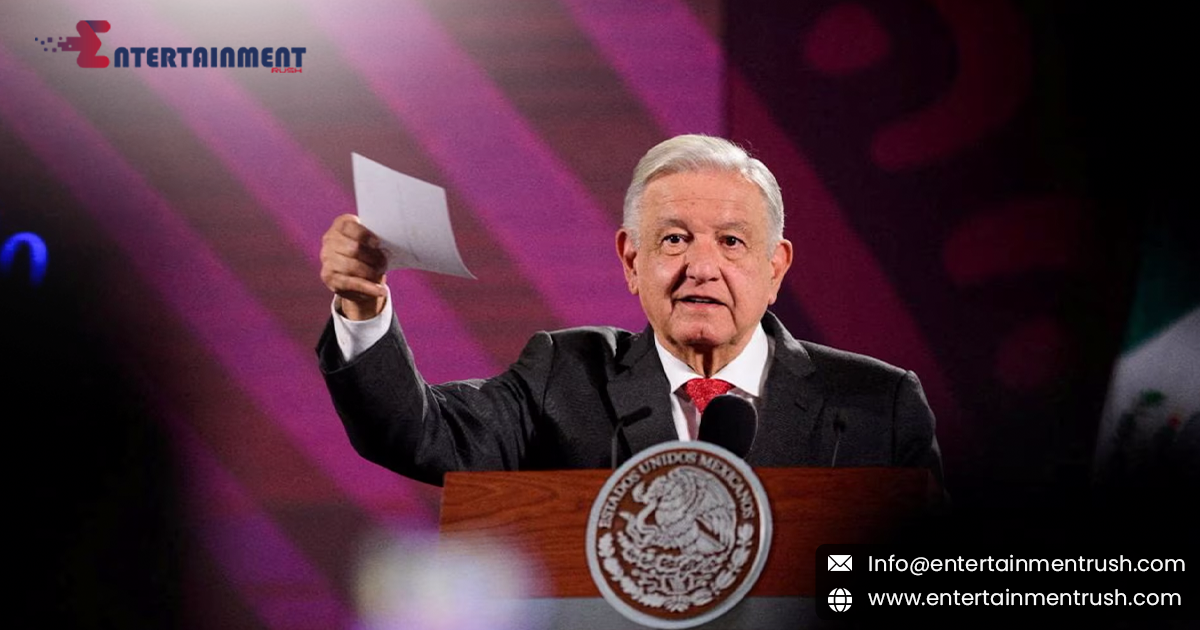In a significant diplomatic development, Mexico has decided to halt relations with the U.S. Embassy amid a contentious dispute over judicial reforms. This unprecedented move underscores the growing friction between the two nations and raises important questions about the future of their bilateral relations. Here’s an in-depth look at the implications of this decision and the background of the dispute.
The Dispute Over Judicial Overhaul
The core issue behind Mexico’s decision to halt relations with the U.S. Embassy revolves around a controversial judicial overhaul in Mexico. The proposed reforms, aimed at restructuring the Mexican judiciary, have faced significant criticism both domestically and internationally. Critics argue that these changes could undermine judicial independence and the rule of law, leading to concerns about the erosion of democratic institutions.
The U.S. has expressed its concerns regarding these reforms, advocating for transparency and the preservation of judicial integrity. The U.S. Embassy’s statements and criticisms have been perceived by Mexican officials as interference in domestic affairs, exacerbating the diplomatic rift.
Mexico’s Response
In response to the U.S. stance on the judicial reforms, Mexico has taken the drastic step of halting relations with the U.S. Embassy. This decision reflects the intensity of the diplomatic disagreement and represents a significant escalation in tensions between the two countries. By suspending diplomatic interactions, Mexico aims to signal its displeasure and assert its sovereignty over internal matters.
The halt in relations includes a suspension of diplomatic meetings, joint initiatives, and other forms of collaboration between Mexican authorities and the U.S. Embassy. This move is likely to affect various aspects of bilateral cooperation, including trade, security, and cultural exchanges.
Implications for Bilateral Relations
The suspension of relations with the U.S. Embassy could have far-reaching implications for Mexico-U.S. relations. Both countries have historically enjoyed a cooperative partnership, with significant collaboration in areas such as trade, security, and migration. The current diplomatic freeze threatens to disrupt this partnership and could impact ongoing and future bilateral projects.
The halt in relations also comes at a time when both nations are addressing critical issues such as regional security and economic recovery. The suspension may hinder progress on these fronts and complicate efforts to address shared challenges.
Potential for Resolution
Despite the current strain, there remains a potential pathway to resolution. Diplomatic negotiations and dialogue could offer a means to address the concerns on both sides and restore relations. Both Mexico and the U.S. have a vested interest in maintaining a stable and cooperative partnership, and efforts to resolve the dispute may emerge as both nations seek to mitigate the impact of the current situation.
International observers and stakeholders will be closely watching how this diplomatic crisis evolves and whether a constructive resolution can be achieved. The outcome will likely influence the future dynamics of Mexico-U.S. relations and the broader geopolitical landscape.
Conclusion
Mexico’s decision to halt relations with the U.S. Embassy amid the dispute over judicial overhaul marks a critical juncture in the bilateral relationship between the two nations. The diplomatic freeze underscores the challenges of navigating complex issues involving national sovereignty and international critique. As the situation develops, it will be essential for both countries to seek avenues for dialogue and resolution to restore and strengthen their partnership. The ongoing dispute serves as a reminder of the intricate nature of international relations and the importance of diplomacy in addressing global challenges.




Leave feedback about this